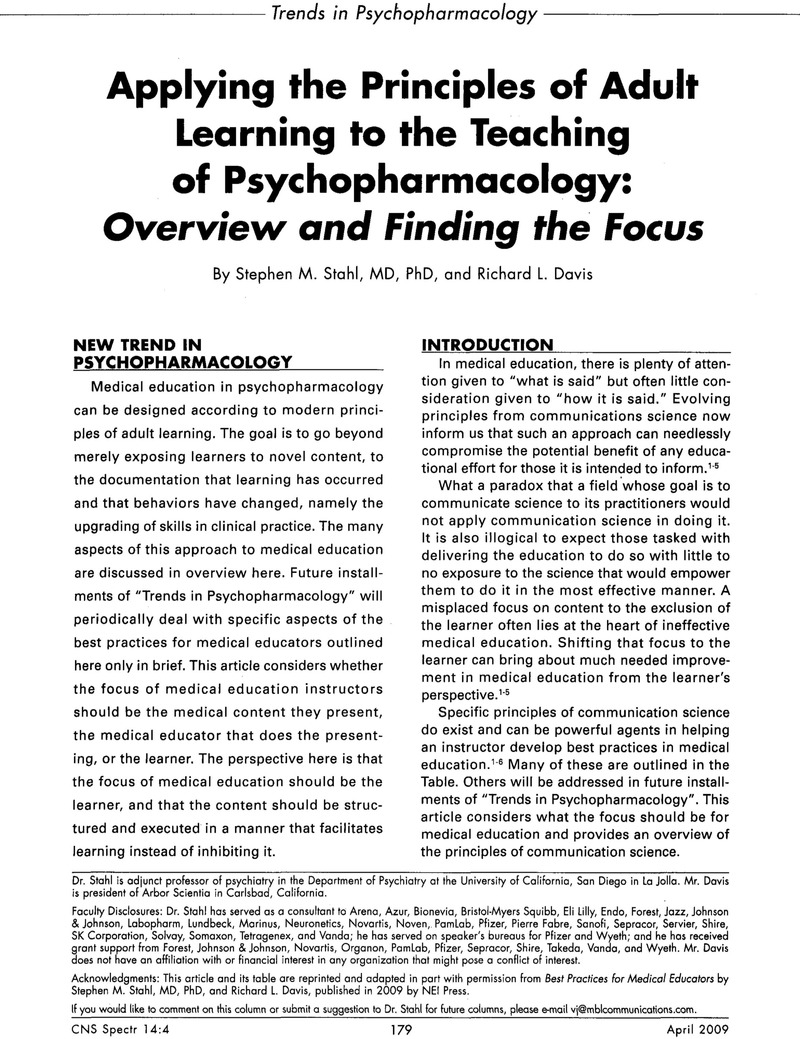Crossref Citations
This article has been cited by the following publications. This list is generated based on data provided by Crossref.
Stahl, Stephen M.
and
Davis, Richard L.
2009.
Applying the Principles of Adult Learning to the Teaching of Psychopharmacology: Storyboarding a Presentation and the Rule of Small Multiples.
CNS Spectrums,
Vol. 14,
Issue. 6,
p.
288.
Stahl, Stephen M.
and
Davis, Richard L.
2009.
Applying the Principles of Adult Learning to the Teaching of Psychopharmacology: Audience Response Systems.
CNS Spectrums,
Vol. 14,
Issue. 8,
p.
412.
Stahl, Stephen M.
Davis, Richard L.
Kim, Dennis H.
Lowe, Nicole Gellings
Carlson, Richard E.
Fountain, Karen
and
Grady, Meghan M.
2010.
Play it Again: The Master Psychopharmacology Program as an Example of Interval Learning in Bite-Sized Portions.
CNS Spectrums,
Vol. 15,
Issue. 8,
p.
491.
Baron, David
and
Coskun, Bulent
2011.
Teaching Psychiatry.
p.
247.
Shoirah, Hazem
Ntranos, Achilles
Brandstadter, Rachel
Liu, Yangbo
Medina, Elisha
Kwan, Jamie
and
Krieger, Stephen
2018.
Education Research: Resident education through adult learning in neurology.
Neurology,
Vol. 91,
Issue. 5,
p.
234.





